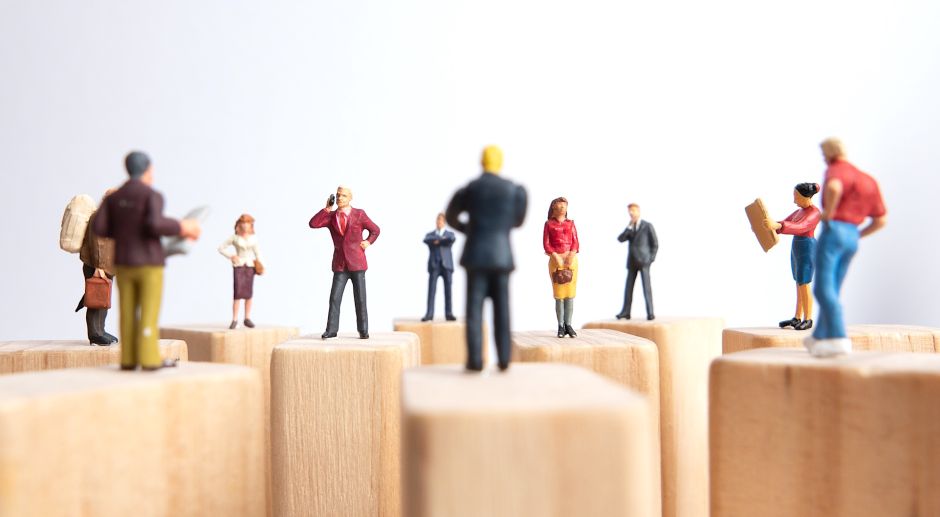Social relationships influence fuel choices

Swedish shipping companies’ choices of alternative fuels are not based on simple, linear, and rational decisions. Social relationships and networks also play an important role. This is shown by a new pre-study conducted within the Swedish Transport Administration’s industry program Sustainable Shipping, run by Lighthouse.
The pre-study, Social relations influence over choices of alternative marine fuels, is based on twelve interviews with representatives from Swedish shipping companies and seeks to answer a central question: how do social networks and personal contacts influence shipping companies’ choices of future marine fuels?
“All the companies have been very positive about having the issue examined from this particular perspective. Many believe that more interdisciplinary approaches are needed—approaches that are not based solely on rational decision-making models but also take into account the cognitive processes that guide our choices,” says Hanna Varvne, researcher at RISE, who conducted the study together with Chalmers researcher Selma Brynolf.
However, just because companies are interested and willing to be interviewed doesn’t mean they are open to all kinds of questions.
“The issue of choosing alternative fuels is very sensitive for shipping companies. For them, it’s a matter of competition. That’s why many of those we interviewed found it difficult to speak openly about the subject. Decisions about which fuel to use are often made at a strategic level, high up in the organizations,” says Hanna Varvne, continuing:
“There is great interest in discussing and collaborating on technical solutions, but openness depends on how mature the technologies are. When it comes to solutions that are still early in their development phase—such as hydrogen and wind power—it’s not as sensitive to talk about the decision-making processes. But the closer the technology gets to the market and practical application, the more sensitive it becomes.”
The study shows that shipping companies’ choices of alternative fuels are not based on strictly rational decisions but are rather the result of complex networks, symbolism, and organizational processes. The report cites the following statement, which the authors say illustrates how Swedish shipping companies act:
“We talk to suppliers and engine manufacturers… We talk to our commercial partners; from these partnerships we gather a lot of information that is widely shared among us… Industry organizations, media, and news reports.”
“Even though this is just one example, everyone we spoke with said roughly the same thing. They talk to all kinds of people—bunker suppliers, engine manufacturers, researchers… they sit in reference groups in research projects, and so on,” says Hanna Varvne.
The issue of choosing alternative fuels is not only about functionality—it’s also about availability in sufficient quantities.
“I was surprised at how broad the issue was—about what role companies should take in the future to ensure access to fuel. Different shipping companies will have different conditions for that.”
Designing studies that explore how social relationships and networking influence the choice of alternative fuels in a more comprehensive and meaningful way is a complex task. But such studies are needed, says Hanna Varvne, who hopes for more follow-up research.
“It’s a highly relevant topic and the perspective is valuable, but today it’s difficult for researchers to get into boardrooms and hear how companies think about alternative fuels that are already on the market, such as LNG.”
The pre-study Social relations influence over choices of alternative marine fuels was authored by Hanna Varvne (RISE) and Selma Brynolf (Chalmers).
-
 Ny studie: Eldrivna pendelbåtar kan effektivisera Stockholms kollektivtrafik
Ny studie: Eldrivna pendelbåtar kan effektivisera Stockholms kollektivtrafik -
 EU: Sjöfartens utsläpp ökar
EU: Sjöfartens utsläpp ökar -
 Sociala relationer påverkar val av bränsle
Sociala relationer påverkar val av bränsle -
 Sjöfartens omställning kräver ”mjukare” påtryckningar
Sjöfartens omställning kräver ”mjukare” påtryckningar -
 Hon hade avtalad tid med Kapten ynkrygg
Hon hade avtalad tid med Kapten ynkrygg -
 Lighthouse omvärldsanalys 2025 – osäkerhet och tullar präglar sjöfarten
Lighthouse omvärldsanalys 2025 – osäkerhet och tullar präglar sjöfarten -
 Se seminariet Shipping in the Marine Environment
Se seminariet Shipping in the Marine Environment -
 Vad betyder egentligen de 90 procenten?
Vad betyder egentligen de 90 procenten? -
 Hålla där...
Hålla där... -
 Ny rapport: Klimatförändringarna ett hot mot de flesta större hamnar i världen
Ny rapport: Klimatförändringarna ett hot mot de flesta större hamnar i världen

